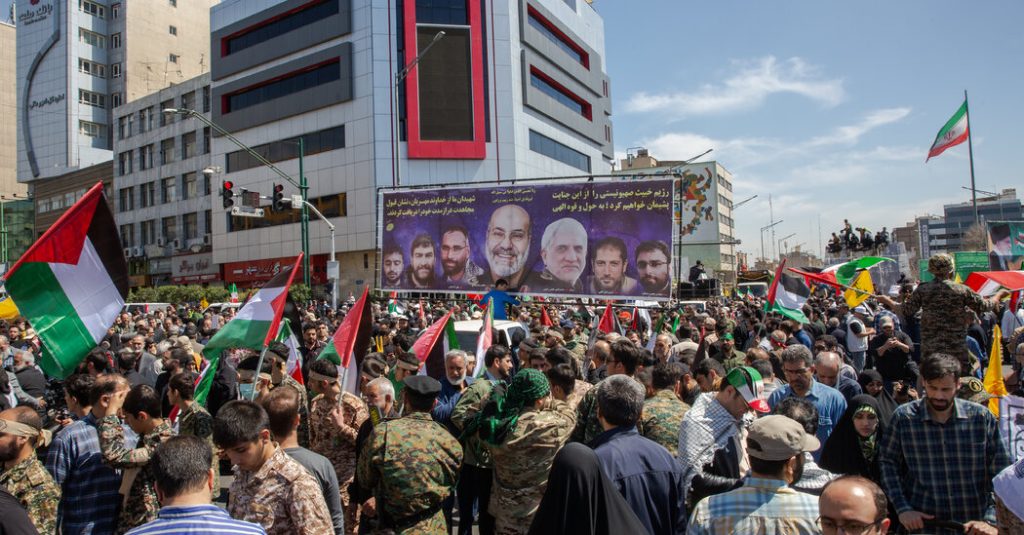American intelligence analysts and officials are expecting Iran to strike multiple targets inside Israel in retaliation for an Israeli airstrike in the Syrian capital on April 1 that killed several senior Iranian commanders. The United States, Israel’s ally, has military forces across the Middle East, but Iran is not expected to target them to avoid a direct conflict. An Iranian strike on Israel would mark a significant escalation in tensions between the two nations, posing risks of a wider conflict involving multiple countries, including the United States.
President Biden expressed his anticipation of an Iranian military attack on Israel and reaffirmed the U.S.’ commitment to defending Israel. Several countries, including the United States, have issued new travel guidelines in light of the potential attacks. The Israeli military is on high alert as preparations are made for a possible strike. Gen. Michael E. Kurilla, the top American military commander for the Middle East, recently traveled to Israel to coordinate the response in case of an attack.
Iran is believed to possess a significant arsenal of ballistic missiles and drones, making the exact form and targets of an attack on Israel unclear. Iranian leaders are expected to calibrate their response carefully to avoid a full-scale war with Israel while sending a message of strength. Despite public threats of retaliation, both Iran and the United States have expressed a desire to avoid an all-out conflict.
The Israeli military has stated that it is prepared and closely monitoring the situation in Iran and other areas. Israel’s response to an Iranian attack remains uncertain. Iran aims to garner support for its retaliatory strike by highlighting the attack against its embassy complex in Syria, which it sees as self-defense. The widening rift between Israeli Prime Minister Benjamin Netanyahu and President Biden over the conflict in Gaza could impact potential hostilities with Iran.
In response to international pressure, including from the U.S., Israel has begun allowing humanitarian aid trucks to enter northern Gaza through a new crossing. The crossing is seen as a step towards alleviating the humanitarian crisis in Gaza, following criticism of the level of destruction caused by Israeli forces. The U.N. plans to examine the crossing’s operations to ensure it can provide sustained aid.
Efforts to de-escalate tensions are ongoing, with discussions between the U.S. and Israeli counterparts to address potential threats and coordinate responses. The situation remains fluid as all parties involved maintain vigilance in the face of possible military action. The focus is on preventing an escalation that could lead to broader regional conflict and ensuring the safety and well-being of civilians in the region.


